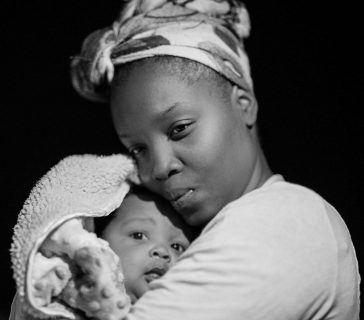Progressive reflections on the lectionary #35
Monday 16th September 2024
Mark 9:30-37: Where Jesus flips the gender script on leadership and greatness

The lectionary is spooling through the greatest hits of the Gospel of Mark at the moment, and this week’s passage is another stone cold classic - Jesus notes his disciples arguing, asks what they were fighting about and finds them strangely silent on the matter. “For on the way they had argued with one another who was the greatest.”
So he sits them down and gives them a hard truth: “Whoever wants to be first must be last of all and servant of all.”
Servant here is the word ‘diakonos’ - these days translated as ‘deacon’ - this is notable partly because when Mark has Jesus re-state this basic idea a chapter later he adds in another word: ‘doulos’ which means ‘slave’. The ‘diakonos’ is someone whose role is to serve others (literally a servant) - not to do their own will, but to ‘do’ the will of whoever commands or asks it of them.
On the face of it telling people that they should be servants, rather than patrons/bosses/kings is simply another example of Jesus overturning the usual expectations. True leadership, he says, is service. Classic, tricksy, koan style paradox.
But then comes the kicker, as Jesus adds a visual element to his statement.
“Then he took a little child and put it among them, and taking it in his arms he said to them, "Whoever welcomes one such child in my name welcomes me, and whoever welcomes me welcomes not me but the one who sent me."”
What this adds to the narrative, I think, is an element of gender talk which wasn’t there before. Jesus’ twelve disciples are all men - symbolically representing the twelve tribes of Israel that the Messiah should reunite. But of course the wider group of Jesus’ followers were a more diverse bunch - certainly in gender terms.
In using nurturing child-care as a demonstration of what he’s talking about, Mark’s Jesus flips the gender script. It is the stereotypically ‘female’ role which he praises, while the classic male idea of remote, powerful, kingship is thoroughly rubbished. One might want to think about how this can be applied to ideas about the divine(!).
Mark follows this up, later, by having women stick with Jesus at the crucifixion while the men hide, and afterwards when the women attend the grave - the men again notably absent. If ever leadership qualities were needed…
Mark’s determinedly political Jesus subverts all of the orthodoxies of his time including the one that insisted - as some (inexplicably) still do - that leadership is a ‘male’ role - or that the stereotypical ‘masculine’ models of what a leader is are predominant.
As the latest generation of adults are, en masse, queering the idea of what it is to be ‘male’ or ‘female’, looking beyond broken binaries precious to previous generations, we find that the value of gendered roles have been in question for millennia. As his followers grumble about who is the greatest, so Mark’s Jesus picks up a child and demonstrates that the roles traditionally understood as female are the ones we should be striving for.
This blog is taken from Simon's Substack email series, to subscribe please go to https://simonjcross.substack.c...
Image: What a leader looks like: Photo by Andrae Ricketts on Unsplash


Comments